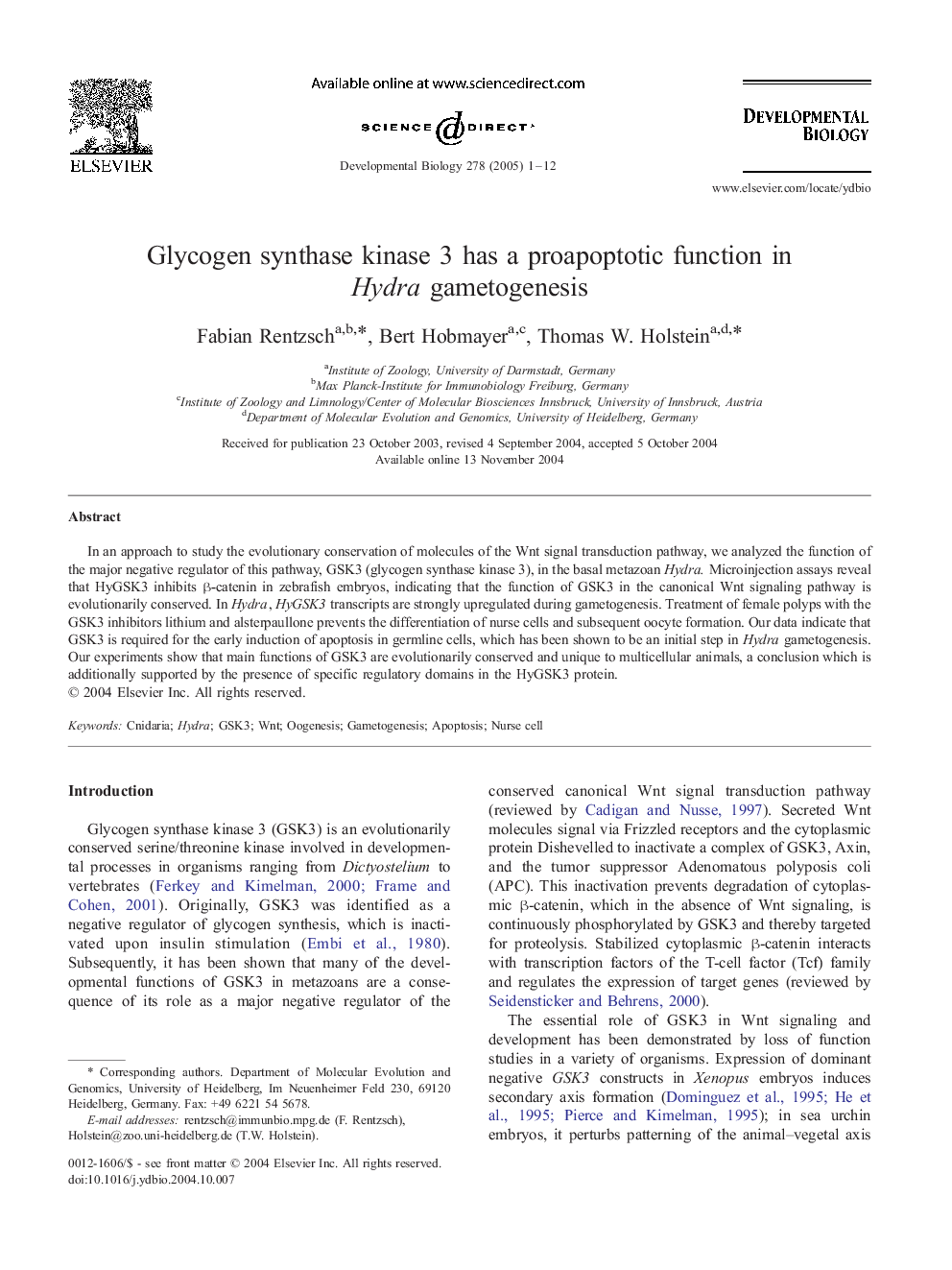| Article ID | Journal | Published Year | Pages | File Type |
|---|---|---|---|---|
| 10934418 | Developmental Biology | 2005 | 12 Pages |
Abstract
In an approach to study the evolutionary conservation of molecules of the Wnt signal transduction pathway, we analyzed the function of the major negative regulator of this pathway, GSK3 (glycogen synthase kinase 3), in the basal metazoan Hydra. Microinjection assays reveal that HyGSK3 inhibits β-catenin in zebrafish embryos, indicating that the function of GSK3 in the canonical Wnt signaling pathway is evolutionarily conserved. In Hydra, HyGSK3 transcripts are strongly upregulated during gametogenesis. Treatment of female polyps with the GSK3 inhibitors lithium and alsterpaullone prevents the differentiation of nurse cells and subsequent oocyte formation. Our data indicate that GSK3 is required for the early induction of apoptosis in germline cells, which has been shown to be an initial step in Hydra gametogenesis. Our experiments show that main functions of GSK3 are evolutionarily conserved and unique to multicellular animals, a conclusion which is additionally supported by the presence of specific regulatory domains in the HyGSK3 protein.
Related Topics
Life Sciences
Biochemistry, Genetics and Molecular Biology
Cell Biology
Authors
Fabian Rentzsch, Bert Hobmayer, Thomas W. Holstein,
